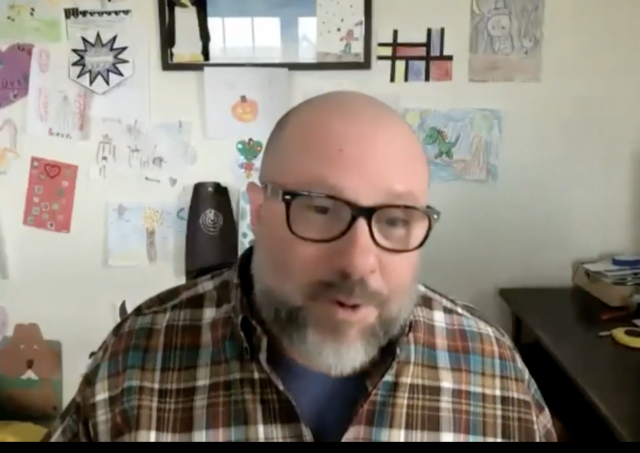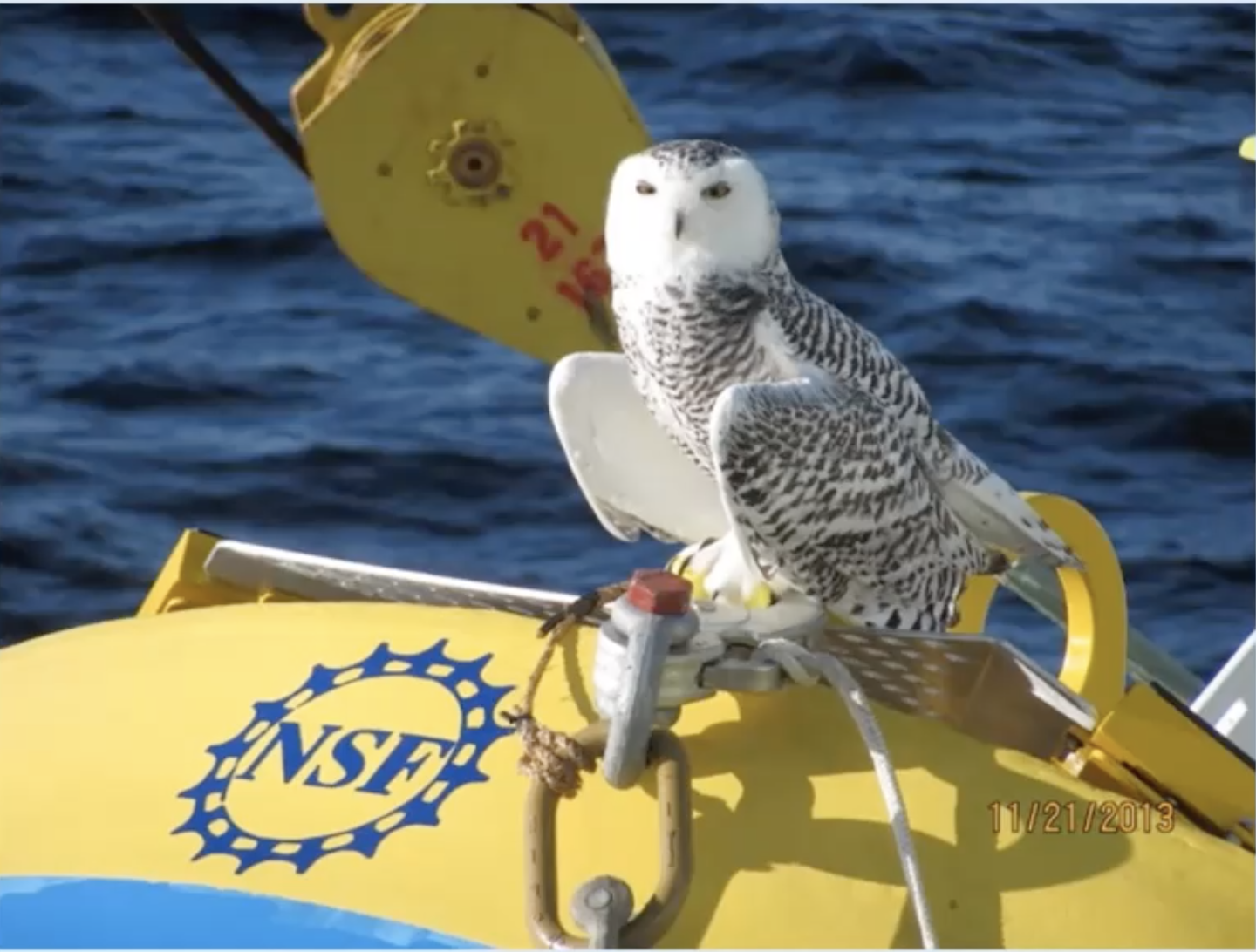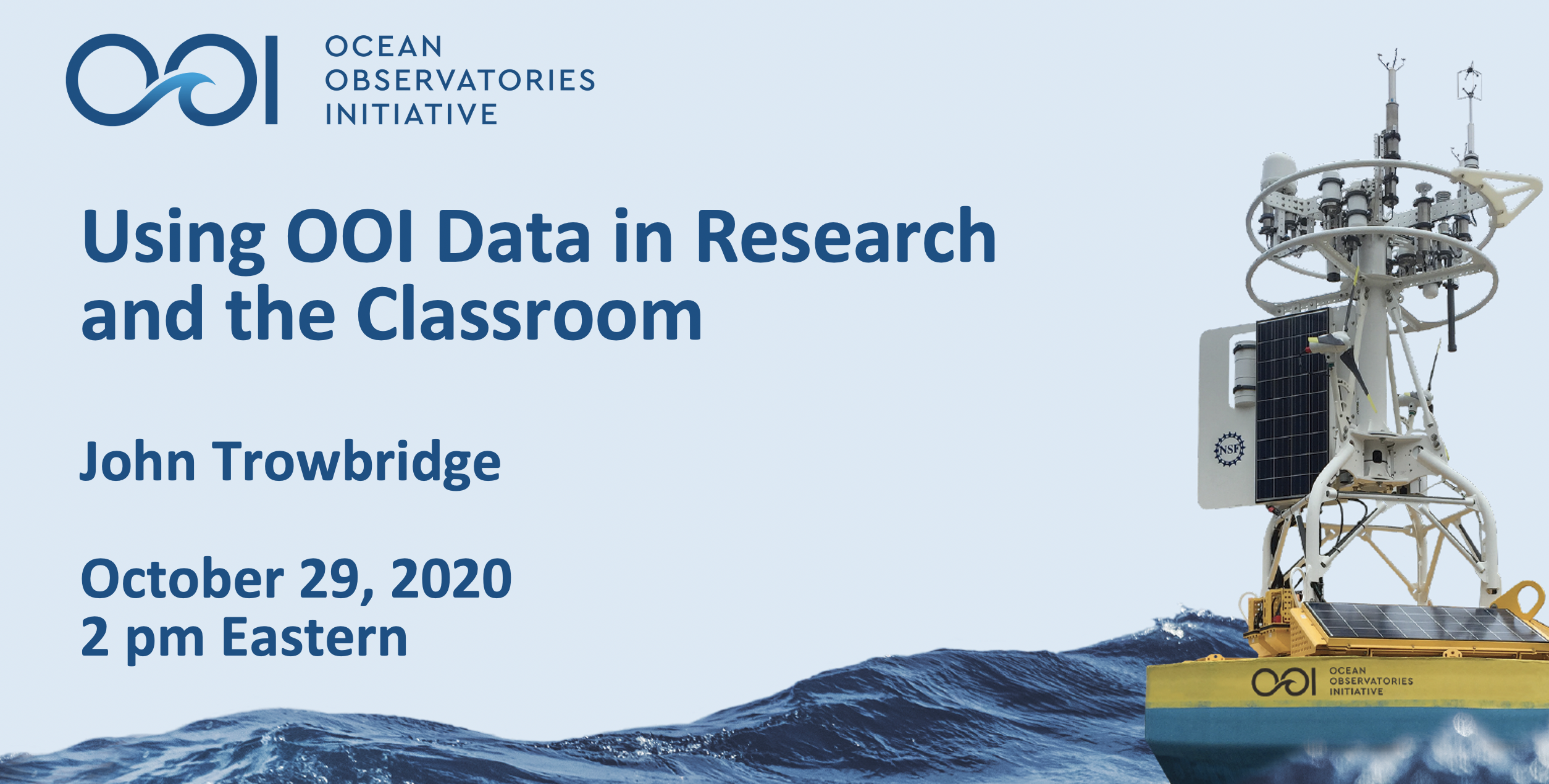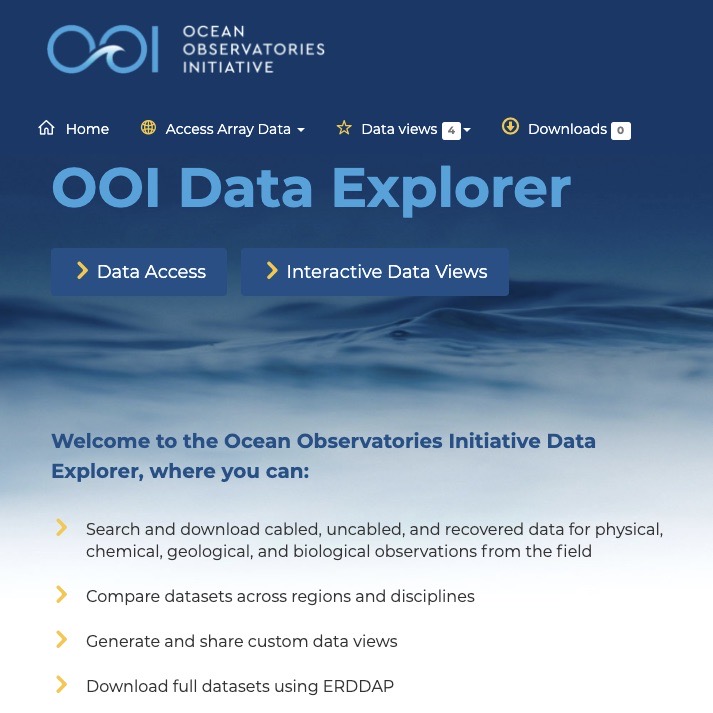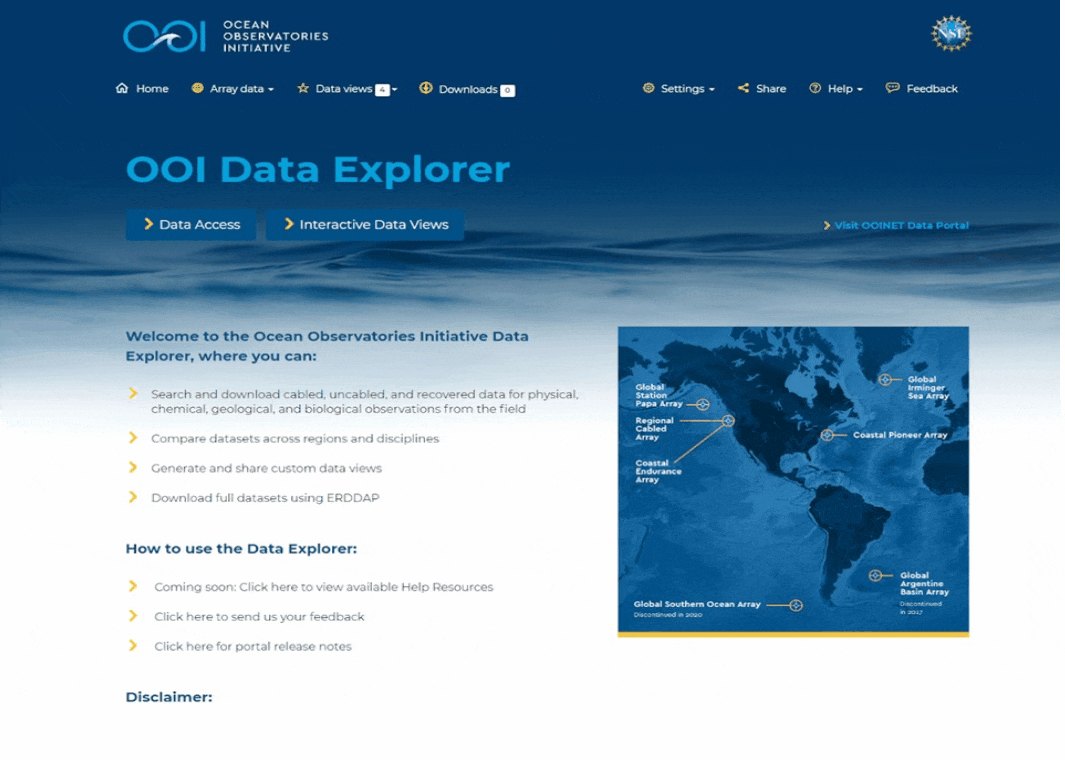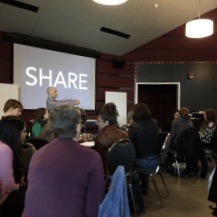Webinar
Jupyter Hub Town Hall Video Available
In case you missed it, here is a video of the Jupyter Hub Town Hall on March 6, 2024.
To gain access to OOI Jupyter Hub, new users need to register email address at: helpdesk@oceanobservatories.org.
The Jupyter Hub url is: https://jupyter.oceanobservatories.org.
[embed]https://youtu.be/tGn9hGdenfw[/embed] Read MoreCGSN Infrastructure and Operations Webinar
In case you missed it, here’s another chance to join the leaders of the Coastal and Global Scale Node (CGSN) team to hear them describe the infrastructure making up the CGSN arrays, the current status of deployment, and how researchers and educators can get involved with the OOI.
[embed]https://vimeo.com/607455613[/embed] Read More
NSF Webinar on Center for Advancement & Synthesis of Open Environmental Data & Sciences Competition
On February 23, 2021 at 3:00 PM EST, NSF will host a one-hour webinar to provide information concerning the competition for a Center for Advancement & Synthesis of Open Environmental Data & Sciences (NSF 21-549). The National Science Foundation’s (NSF) Divisions of Biological Infrastructure (DBI), Environmental Biology (DEB), and the Office for Advanced Cyberinfrastructure (OAC) are hosting the webinar. Following a brief presentation, program directors will be available to answer questions from participants.
Open biological and other environmental data are produced by NSF investments in research and infrastructure such as the National Ecological Observatory Network (NEON), the Ocean Observatories Initiative (OOI), the Long-Term Ecological Research (LTER) network, and the Integrated Digitized Biocollections (iDigBio), as well as by many other public and private initiatives in the U.S. and worldwide. These efforts afford opportunities for collaborative investigations that will advance our predictive understanding of life on Earth; publicly available data are burgeoning. Access to and creative use of these data can democratize science and diversify the STEM workforce as never before by making the same data available to and usable by everyone, from collaborative teams of experts to individual students, researchers, educators and policy makers.
In response, NSF seeks to establish a Center fueled by open and freely available biological and other environmental data to catalyze novel scientific questions in environmental biology through the use of data-intensive approaches, team science and research networks, and training in the accession, management, analysis, visualization, and synthesis of large data sets. The Center will provide vision for speeding discovery through the increased use of large, publicly accessible datasets to address biological research questions through collaborations with scientists in other related disciplines.
Register in advance for this webinar:
https://nsf.zoomgov.com/webinar/register/WN_YvILcBaDRSWB6fCtbR6cAg
Or an H.323/SIP room system:
H.323: 161.199.138.10 (US West) or 161.199.136.10 (US East)
Meeting ID: 161 025 1954
Passcode: 179784
SIP: 1610251954@sip.zoomgov.com
Passcode: 179784
After registering, you will receive a confirmation email containing information about joining the webinar.
Contact: Hannah Perry hanperry@nsf.gov
Read More
OOI Data in Research and in the Classroom
OOI Principal Investigator John Trowbridge gives a short overview of OOI and its capabilities of delivering real time ocean data, followed by a lively Q&A. Everything you need to know about OOI in 22 short minutes.
https://youtu.be/ddboz9XO6xU
Read MoreSee the Data Explorer in Action!
In case you missed it, here is an opportunity to see a live demo of the new Data Explorer tool. OOI Data Deliver Lead Jeff Glatstein provides a quick look at how the Data Explorer was developed. Craig Risien of the Coastal Endurance Array Team follows with a live demonstration of the tool’s capabilities using Endurance Array data to create a data view. Axiom Developer Brian Stone concludes the demo by answering questions and digging deeper into the many features of this outstanding new tool.
Watch now!
https://youtu.be/BBxdii0M-nA
Read More
Oct 29: Opportunity to Learn More About the OOI
[media-caption path="/wp-content/uploads/2020/10/Screen-Shot-2020-10-23-at-2.33.33-PM.png" link="#"]To attend, please register for the webinar at bit.ly://newtoOOI. [/media-caption]
There is still time to register for this webinar here to learn more about OOI and how it can advance your research and aid you in the classroom.
Please join OOI Principal Investigator John Trowbridge in this webinar as he provides an overview of OOI, what it is, how it delivers data, and how researchers and instructors are using OOI data to advance what is known about the changing ocean. There will be ample opportunity to ask questions and engage in discussion.
This webinar is particularly helpful for those new to OOI.
Read More
New Data Explorer Live! Demo 21 October
As of today, accessing, visualizing, and integrating OOI data into research and classrooms is a whole lot easier. The Ocean Observatories Initiative launched its new data exploration tool – OOI Data Explorer version 1.0 on 5 October. Data Explorer allows users to search and download cabled, uncabled, and recovered data, compare datasets across regions and disciplines, generate and share custom data views, and download full data sets using ERDDAP.
The OOI Data Team worked with Axiom Data Science to develop a data exploration system that is both powerful and user friendly. Version 1.0 has already been beta tested over the past three months by a subset of OOI scientific data users. This group’s feedback has improved Data Explorer, making it ready for broader distribution and use.
A live demonstration of Data Explorer is scheduled for 21 October at 2 pm EDT. This timeframe will allow users to try their hands using Data Explorer and come to the demonstration ready with specific questions about accessing data or suggestions on functions that could further enhance the user experience. To reserve a spot at the live demo, please register here.
“Data Explorer version 1.0 is the culmination of a process of listening to OOI data users and responding by implementing easier, more efficient, and useful means to deliver OOI data to them,” explained Jeffrey Glatstein, head of OOI’s Cyberinfrastructure, who guided a team of data and visualization experts in developing the tool. “It is an excellent tool that has been refined over the test period, and which we will continue to refine it in response to users’ suggestions. While continued improvements will be made and more data continually added, Data Explorer version 1.0 offers a great new way to find, access, and use OOI data.”
To ensure that all OOI data users maintain access to data, OOI’s current data portal will remain accessible and functional until the foreseeable future. Once all data have been exported to Data Explorer, tested, and vetted, only then will a complete switch be made to this new innovative tool.
The developers caution that Data Explorer version 1.0 may still have a few bugs, and users are asked to report them so the tool can be improved.
Added Glatstein, “Data Explorer is really a community-driven tool and it will be exciting to see how we can refine and improve it to meet the needs of our community.”
Read MoreOcean Data Labs Tutorial at WHOI Available Online
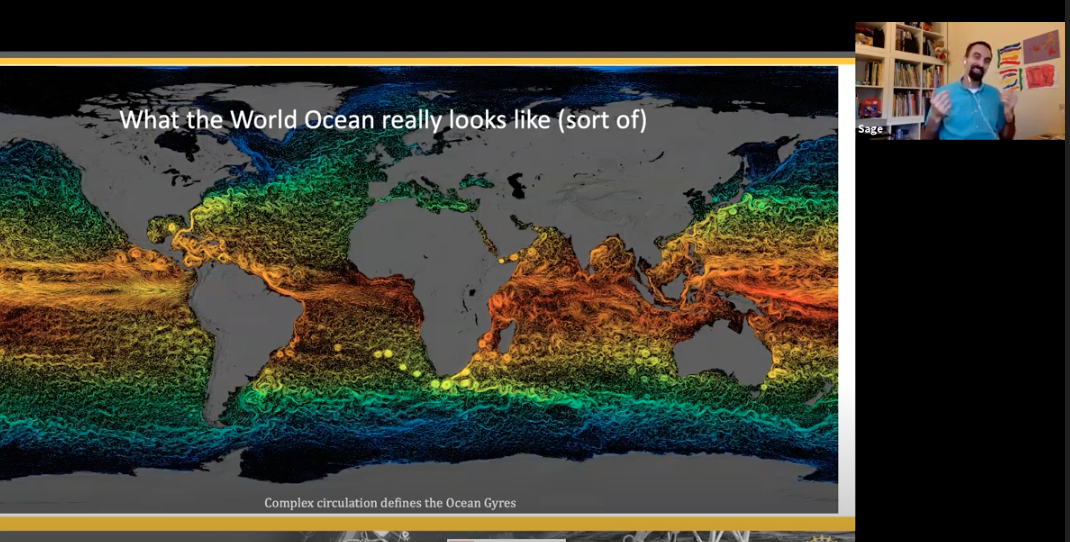 The Zoom screen was full as 40 people participated in the third of Woods Hole Oceanographic Institution’s (WHOI) Data Science Summer Series on 4 August 2020. Research Programmer Dr. Sage Lichtenwalner, of Rutgers, the State University of New Jersey, who helped design and implement the Ocean Observatories Initiative (OOI) Ocean Data Labs, presented.
The Zoom screen was full as 40 people participated in the third of Woods Hole Oceanographic Institution’s (WHOI) Data Science Summer Series on 4 August 2020. Research Programmer Dr. Sage Lichtenwalner, of Rutgers, the State University of New Jersey, who helped design and implement the Ocean Observatories Initiative (OOI) Ocean Data Labs, presented.
Lichtenwalner gave an overview of the many resources available through the Ocean Data Labs project, which is developing, testing, refining, and disseminating easy-to-use, interactive Data Explorations and Data Lab Notebooks for use in the classroom. Entertaining and information, the hour-long presentation flew by as Lichtenwalner presented tricks and tips to downloading OOI data, how to use OOI data in python and other computing platforms such as the Google Colab interface, and ended with a demonstration visualization of OOI data collected by its Pioneer Array. The complete webinar can be viewed here.
Dr. Stace Beaulieu, a senior research specialist in Biology and coordinator of WHOI’s Ocean Informatics Working Group, planned and hosted the session.
Read More
Coastal Endurance Array Dissolved Oxygen Webinar Online
If you missed the 16 September 2020 Coastal Endurance Array’s webinar on dissolved oxygen, you can view it below. It’s an easily digestible webinar series in four short sections, detailing the Coastal Endurance Array’s dissolved oxygen data, how they are collected, and what is being learned from this collection of five+ years of data.
https://youtu.be/NlfPH8X5Vy8
https://youtu.be/2uJYzthlvJs
https://youtu.be/aus7eaDlNtE
https://youtu.be/s7f_6rdBf2w
Read MoreOcean Data Labs Webinar 16 September
On 16 September at 4 pm Eastern, Ocean Data Labs will kick off it fall webinar series: Ocean Data Labs Plus, a webinar series for Community College and University Professors teaching oceanography or geosciences courses. The series opener will be “New You Can Use,” hosted by the OOI Data Labs Project Team and special guests.
The webinar will explore how the Data Labs Project can support your efforts to introduce big data into your undergraduate courses. Join the Team to find out about newly-developed interactive online data-focused activities that are grounded in learning science – and consider how to effectively incorporate them into your courses. Check out the Ocean Data Lab’s online collection of data explorations and data nuggets in advance, and bring your questions and ideas. Each webinar will last about 60-75 minutes and is meant to be more of an interactive discussion.
Register: https://rutgers.zoom.us/meeting/register/tJApfuGoqjItGtbfEBMLQFf9MNkZTDCVGUdp
Read More

